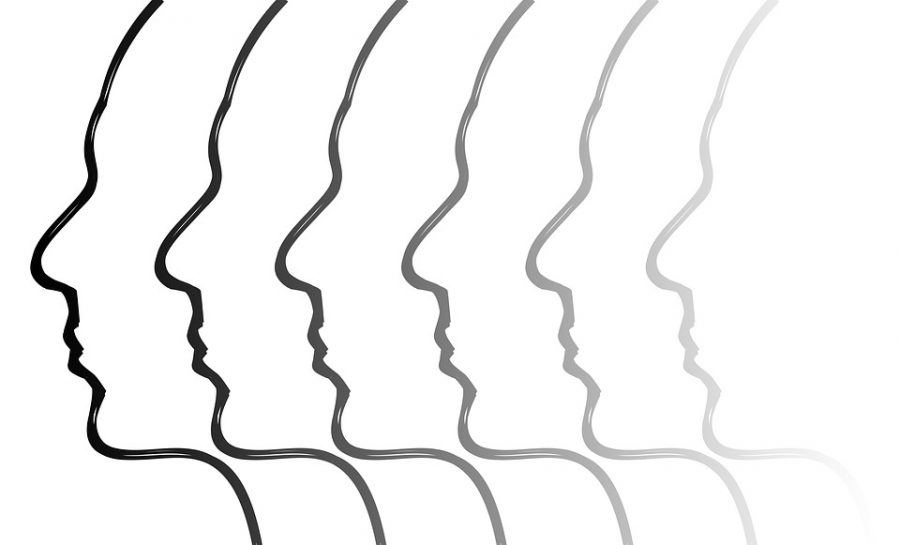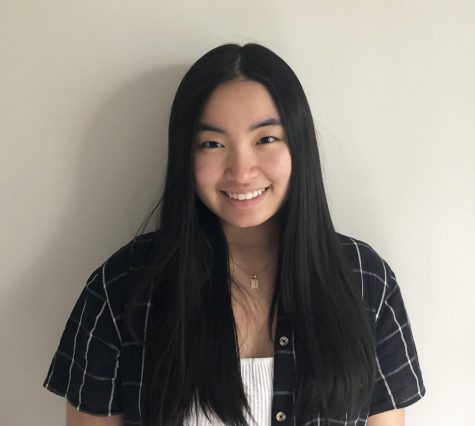Thought diversity at Masters
January 22, 2018
In her recent visit to Masters, Irshad Manji was able to talk to a few classes at Masters about her work around moral courage, and what it means to her. I was lucky enough to have her in two of my classes: Introduction to Journalism and World Religions.
Manji is an author, educator, and activist. She is also the founder of the Moral Courage Project, which she describes “is about equipping people, students for sure, but also adults in their own professions to stand up for what is right and to have the humility to be taught why or how they can prove their positions so that they themselves don’t fall into the trap of being dogmatic as they’re trying to do the right thing.” She discussed the definition of moral courage, which means to do the “right”, or morally correct, thing, especially in the face of potential negative judgment from others.
Manji emphasized the importance of diversity of thought among other factors to have effective discussions. This stood out to me. She commented that social identifiers like gender, socioeconomic, and race were important in diversity of people, but diversity of thought is even more important. Diversity of thought makes for effective conversation and change. I immediately thought back to Masters’ Diversity Ambassadors, who conjoin to have discussions regarding social justice issues and brainstorm how Masters is affected or affects the issue at hand, and issues noticed within our own school.
I, myself a Diversity Ambassador, have had multiple conversations about the actual effect of our role as ambassadors with other students and ambassadors. What real effect do our meetings have? How do our actions within meetings actually affect people outside of them?
As time has progressed, I’ve begun to notice that we reiterate similar ideas and affirm each other’s opinions. I couldn’t pinpoint why exactly this was. When Manji brought up the topic of diversity of thought, a light bulb lit.
I started thinking about what the lack of diversity of thought in our meetings means. Diversity ambassadors are supposed to drive forward change and help facilitate or spur conversations when it comes to social justice. Why is that we have a cohesive opinion and mindset when it comes to “issues”? Our school claims to welcome differences yet the students who are supposed to preach the right thing don’t have conversations within themselves that challenge one another. Students are expected to embrace differences when students who are chosen by faculty to advocate for “what’s right” all have similar definitions of what that means and similar approaches to exercise moral courage.
It’s hard to sift through what it means to be “right” and what qualifies a person to be so, but I feed into this cycle of little difference of opinion among the diversity ambassador population all in all. That being said, Diversity Ambassadors is still very much important to me because there are so many different topics we could further explore and discuss. It’s an environment specifically made for challenging questions and discussions about morality and social justice at Masters and there is no other place like it for me and others to voice our opinions surrounding a variety of topics that range from DACA protests to microaggressions. This environment is important to keep a conversation revolving around social justice. However, Manji’s lessons have prompted me to think about how the lack of difference of opinion affect activities and changes in our school.
Admittedly, it’s not a bad feeling when my opinions are validated and agreed upon. But in a bigger picture, how can inviting both faculty and students of different opinions benefit our whole school population? How do we invite them to begin with? Do they even want to participate in the conversation? Will that ostracize or alienate them? How do we approach incorporating diversity of thought into effective conversations?
Aside from specific Diversity Ambassador meetings, Masters has a detrimental, hypocritical mindset when approaching issues. Masters students as a whole, myself included, regard themselves as liberal thinkers that stand against bigotry and xenophobia. But this attitude and generally accepted belief that Masters is liberal allows both obvious and subtle gestures of racism, homophobia, misogyny, transphobia, and other acts of xenophobia to exist. These actions are brushed under the rug or excused because the question asked and mindset exercised is: Why would anyone at Masters genuinely believe that? We would never allow that; Masters is a liberal school. This liberal bubble is an excuse that allows us to be irresponsible and not be held accountable for all our actions. Whether or not Masters is actually a liberal school, we shouldn’t excuse actions that discriminate and ostracize members of the community. If anything, students should work to upkeep and prove true the idea that Masters is a welcoming place for people of all backgrounds and walks of life.
Masters is quick to criticize others for xenophobic actions but we struggle with reflecting on our own school environment. Whether we are the ones to say or perform xenophobic acts or the ones to not say anything, without calling people out and trying to understand different opinions and having discussions, we perpetuate this liberal bubble and do nothing to change the school. To call people out and directly confront people takes moral courage; the strength to stand for what’s right, or in this case, for what needs to be confronted or changed, in the face of stepping out of the comfort zone and potentially facing backlash, disapproval, or disagreement.
The idea of diversity of thought and will to actually listen, digest different opinions, and have moral courage to change a mindset or environment is important to have what Manji coined “constructive conflicts” to understand different opinions and maximize the effects of having effective discussions.
Diversity Ambassadors are an important aspect of Masters’ drive towards change. Ambassadors organize events that bring awareness to issues and lead conversations that challenge norms. But, we can do better. Like everything else, Masters is an ever-evolving setting and what Masters will become is beyond my high school experience. The topics Manji discussed not only applies to Masters, but everywhere.




